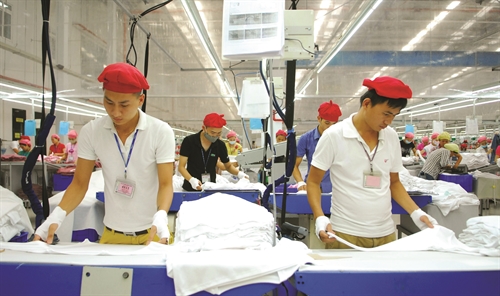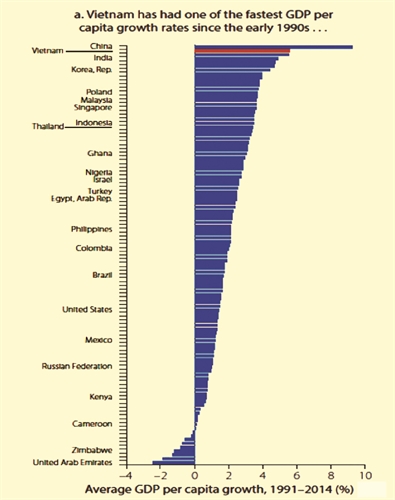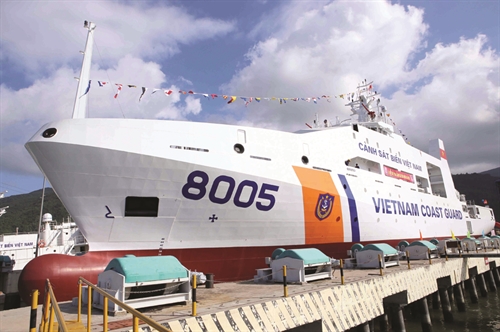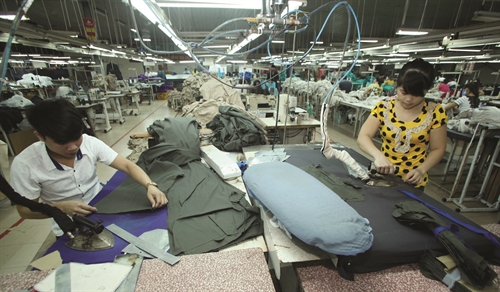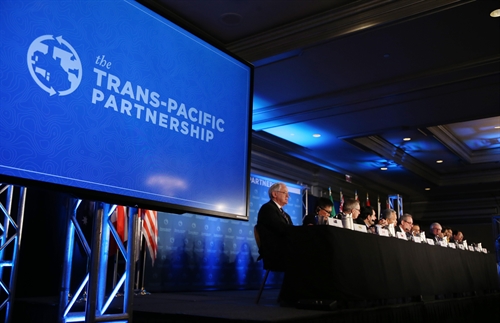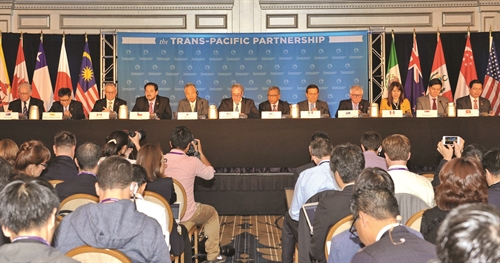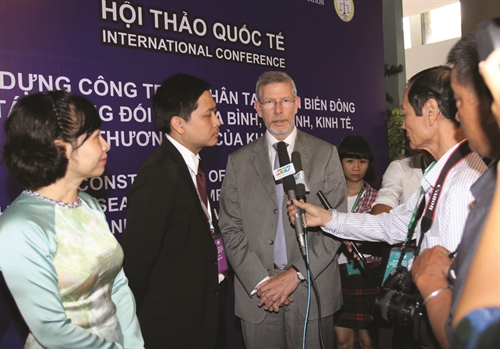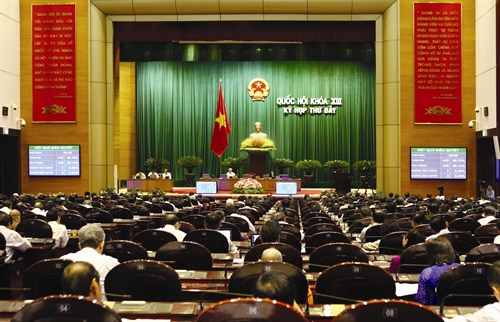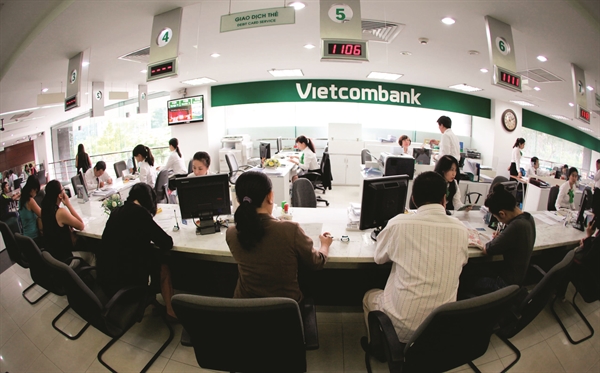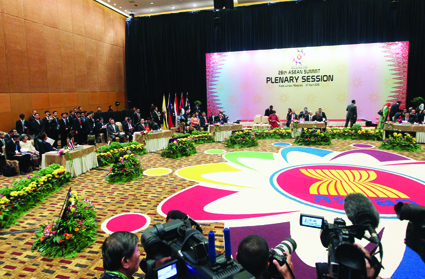Dharmendra N. Choudhary[1]
On March 29, 2016, the US Department of Commerce (DoC) published the final results of the 11th administrative review of the anti-dumping (AD) duty orders on frozen basa/tra fish fillets from Vietnam. The two largest exporters, HVG and Tafishco, received AD duty rates of 41 and 97 US cents per kg respectively, while an average rate of 69 US cents per kg was levied on the “separate rate” companies (i.e. companies which could establish their independence from the Vietnamese government). Finally, a punitive rate of 239 US cents per kg from earlier periods was maintained on all other Vietnamese exporters. These AD rates are unreasonably high and at these rates, the basa/tra fish fillets exporters will find it nearly impossible to export to the US market.
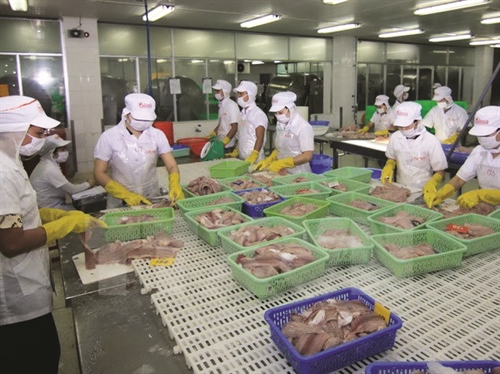 |
| Processing Tra catfish’s fillets for export __ Photo: Vu Sinh/VNA |
This article attempts to explain the complicated methodology, further aggravated by an unlawful application, used by DoC for determining the AD duties on exports of Vietnamese basa/tra fillets to the US market.
In US AD proceedings, the allegation on exporters is that they are engaged in selling goods to the US market at a price that is lower than the fair market value (or, normal value) of goods, which causes material injury to the US domestic producers. The normal value of goods is typically the price at which the exporter sells goods in its own home market. However, an exception is made for non-market economy (NME) countries like Vietnam and China. Pursuant to treating Vietnam as an NME country, DoC rejects the cost and price data reported from within Vietnam. Instead, under the US law, the agency determines the normal value of basa/tra fillets by applying a cost construction methodology, wherein it values all of the individual inputs that are utilized in producing fish fillets (whole fish, fingerlings, fish feed, chemicals, labor cost, electricity etc.) based on the prevailing prices in a surrogate country. As such, it is obvious that the choice of a proper surrogate country is the single most important decision that shapes the ultimate outcome in an AD case.
Under the US law, DoC is mandated to select a surrogate country to Vietnam based upon two criteria - (a) it should be “economically comparable” to Vietnam in terms of per capita gross national income (GNI), and (b) it should be a “significant producer” of comparable merchandise. In the 11th review, DoC selected Indonesia as the surrogate country to Vietnam and, consequently, determined the normal value of basa/tra fish fillets, by valuing all of the individual production inputs based on the price in the Indonesian market and then aggregated them to obtain the normal value of exported fish fillets. As explained below, DoC’s preference for Indonesia as a surrogate country is unlawful and is the single most important reason for very high AD duties on Vietnamese fish fillets.
There is no dispute that Indonesia is not economically comparable to Vietnam and this is why. At the beginning of each review proceeding, DoC’s own Office of Policy (OP) circulates a list of countries that are considered to be economically comparable to Vietnam, based on the per capita gross national income (GNI) of individual countries. The OP list circulated at the inception of 11th administrative review did not include Indonesia since Indonesia’s per capita GNI was far removed from Vietnam’s. As such, in accordance with established law and precedent, DoC was required to select a surrogate country from the OP list of economically comparable countries that included Bangladesh, the Philippines and India, all of which are not only economically comparable to Vietnam but also significant producers of basa/tra fish fillets. All the three countries, especially Bangladesh, afford quality pricing data to enable DoC determine the normal value of fish fillets with accuracy. This fact raises a serious question as to why DoC resorted to selecting a non-economically comparable country, Indonesia, as a surrogate country choice. DoC’s explanations on this issue have been wobbly, unpersuasive and contradicted by its own settled practice and judicial precedent.
The history of the AD proceeding on Vietnamese fish fillets shows that for over 10 years, up until the 8th administrative review, pursuant to the consistent selection of Bangladesh as the surrogate country, DoC had determined the normal value of Vietnamese basa/tra fish fillets based on the Bangladeshi price data. It needs to be underscored that during this period, both Bangladesh and Indonesia were on the OP list of economically comparable countries and yet, Bangladesh was consistently preferred over Indonesia. Over this time period, although AD duty rates were being levied on Vietnamese exports, such rates were nonetheless somewhat reasonable and not punitive, as a result of which a fine balance was struck between the trade remedy tools and the overarching objective of ensuring a free and fair international trade. The ultimate beneficiaries were US consumers who could buy basa/tra fish fillets at affordable prices, instead of having to pay monopolistic and exorbitant prices. Imports from Vietnam also sustained thousands of jobs in the supply chain, from Vietnam to the US market. The only aggrieved party was the US domestic industry.
Having essentially failed in their endeavor to stanch the Vietnamese imports even after numerous AD reviews by DoC, the domestic US farmers in Mississippi, Arkansas and Louisiana and their association, Catfish Farmers of America (CFA) went on an overdrive and sought to change the rules of the game overnight. Having lost all the earlier battles on merit, in the 8th administrative review, the CFA brought enormous pressure to bear upon DoC, compelling it to change its investigation team that had all along been handling this case very diligently. However, CFA still faced a major hurdle in its objective to force a methodological change in order to achieve a very high AD duty rate because Indonesia had been summarily removed from the OP list of economically comparable countries in the 8th review. Even so, CFA doggedly lobbied DoC to switch over the surrogate country from Bangladesh, an economically comparable country, to Indonesia, an economically non-comparable country. Vietnamese exporters and their association (VASEP), who strongly resisted CFA’s unlawful arguments in support of Indonesia, were shocked when DoC, in March 2013, chose a moribund Indonesia over Bangladesh as the surrogate country to Vietnam. This switch in surrogate countries heralded an era of unreasonably high and, arguably, punitive rates of AD duties on Vietnamese basa/tra fillets exporters.
DoC’s choice of Indonesia was patently unlawful for several reasons. First, it is indeed inexplicable that DoC suddenly had an epiphany regarding Indonesia, only after the country had been expressly removed by the agency itself for failing to meet the criteria of economic comparability. Second, even leaving aside the issue of a lack of economic comparability, DoC’s proffered reasoning in selecting Indonesia over the settled choice of Bangladesh - that Indonesia alone afforded reliable price data for whole fish while Bangladeshi price data was unreliable - was unpersuasive and contrary to a mountain of evidence placed before the agency. The Indonesian Aquacultural Statistical (IAS) data, which was used to value whole fish, was excoriated by the then Director General of IAS, Mr. Ketuk Sugama. In a signed affidavit that was placed before DoC, Mr. Sugama explained that the IAS data mirrored price data of several disparate species of fish grown by several aquaculture methods other than by pond (as in Vietnam), and was distorted by retail prices for processed fish. In contrast, VASEP had placed several official letters from Bangladeshi government officials, demonstrating the high quality of Bangladeshi DAM wholesale price data for pond grown pangasius hypophthalmus species (which was equivalent to pond grown basa/tra). Even so, DoC unreasonably rejected the DAM data by simply relying upon certain self-serving affidavits provided by CFA’s paid consultants that falsely claimed DAM data to include prices of dead fish, while it blindly accepted the IAS data, totally ignoring Mr. Sugama’s authoritative affidavit. VASEP has challenged this decision before the US Court of International Trade and the final outcome is still awaited.
In the meantime, carrying forward its unlawful practice to select an economically non-comparable country, Indonesia, as the primary surrogate country to Vietnam, DoC has continued to levy prohibitively high levels of AD duties in the 9th, 10th and 11th annual reviews. VASEP has filed Court appeals against subsequent decisions by Commerce.
Recently, there was a sliver of good news for the distressed Vietnamese exporters. On March 30, 2016, the US Court of International Trade ruled in favor of VASEP on the issue of surrogate country (sustaining DoC’s choice of Bangladesh) and the overall reliability of the Bangladeshi DAM data, in the appeal filed by CFA against the final results of the 7th administrative review. It is to be seen to what extent this decision will aid VASEP in future litigations.
Even while the Vietnamese exporters have been grappling with the vagaries of the annual review cycles of AD proceedings, CFA has continued to create additional non-tariff barriers against exports of basa/tra fillets from Vietnam. Pursuant to CFA’s lobbying efforts, beginning from March 1, 2016, all exports of basa/tra fillets have been subjected to stringent USDA Food Safety and Inspection Service (FSIS) regulations. The USDA-FSIS equivalency standards and nation-wide inspection/certification regime are extremely complex and will be a challenge for Vietnam and fish fillet processors to comply with. Fortunately, an 18-month transitional period intervenes before these standards kick in with full force.
The same, however, cannot be said about the AD proceedings, which are going to stay in place for a very long time. Therefore, it is extremely important for VASEP and the Vietnamese government to take up the issue of surrogate country selection with the US government. The US government should be informed that DoC’s practices on this issue are internally inconsistent. In a parallel ongoing AD proceeding on another seafood product - frozen shrimp - from Vietnam, DoC continues to select Bangladesh as the surrogate country. This fact suggests that the choice of Indonesia as the surrogate country in the fish fillets case is not based on merit; instead, it is a result-oriented choice, designed solely to drive up the margins of AD duties. The Vietnamese government should also consider using leverage from the new relationships and dynamics surrounding the Trans Pacific Partnership (TPP) against Commerce’s unjust and unlawful practices in the Vietnamese fish fillets AD case.-
